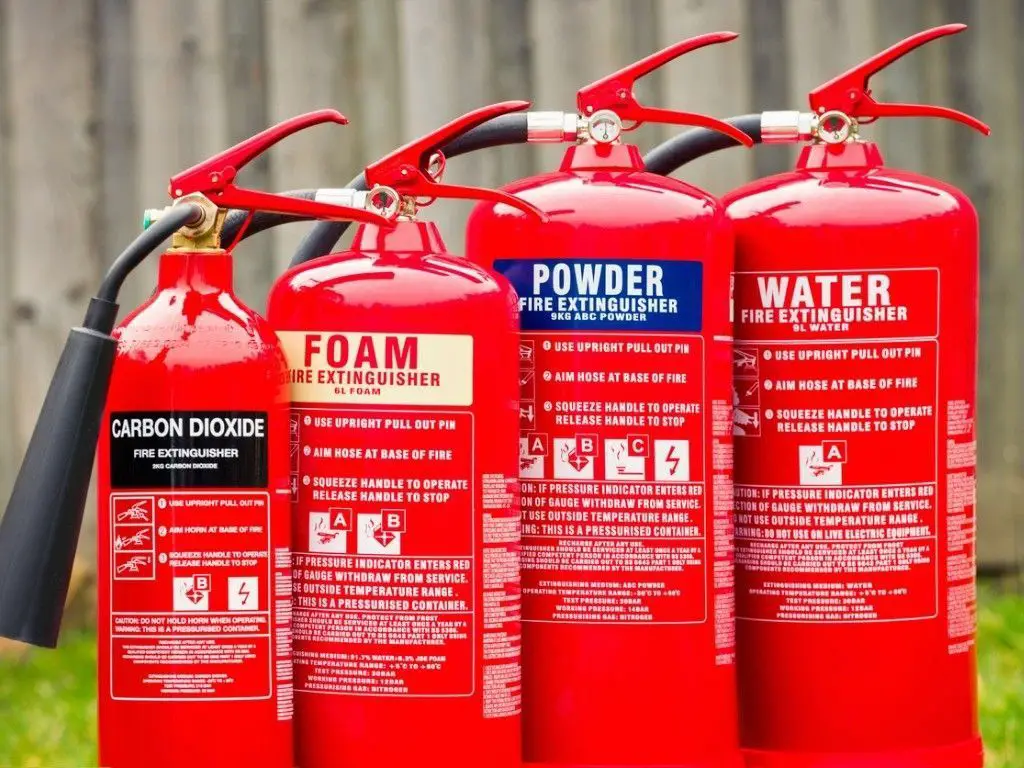Fire extinguishers are necessary for every home.
Proper use of fire extinguishers ensures safety from fire hazards in the early stage of a fire.
However, are these fire extinguishers safe? Do they contain toxic and harmful chemicals?
We’ve all heard the PFAS stories and the negative impact fire-fighting foam has had on the environment and the lives of near-by neighborhoods.
After using a home fire extinguisher to put out a small fire, you will need to clean the area.
The commonly used dry powder in ABC fire extinguishers can leave a lot of residue in powder form.
Before one uses a fire extinguisher, one should be aware of the possible health impacts of the substances used in these fire extinguishers.
So, before you start cleaning the residue, read along to gain an understanding of the potential threat fire extinguisher agents can have, and how to minimize and prevent harm to you and your family.
Are the contents of home fire extinguishers toxic?
The most common material used in dry chemical fire extinguishers is mono ammonium phosphate.
This chemical is in most household fire extinguishers.
It can cause several health issues linked with upper respiratory irritation.
It can also lead to coughing or uneasiness in the chest.
Mono ammonium phosphate can also lead to allergies and irritation on the skin.
In addition, when mono ammonium phosphate rests on electronics, it can result in further destruction.
Irritation in eyes or skin due to mono ammonium phosphate or ammonium sulfate is also common.
Water and carbon dioxide fire extinguishers lead to less health-related issues. Allergies can arise from this type of fire extinguishers as well.
How to clean the residue left from fire extinguishers?
The maximum chance of being exposed to the chemicals inside the fire extinguisher is when trying to extinguish a fire.
Another time when the probability is highest is when cleaning the residue after using the fire extinguisher.
To refrain from breathing residue while vacuuming, wearing a mask is necessary.
Moreover, wearing goggles and shielding gloves prevents the possibilities of developing an allergy.
Wearing disposable overalls also protects from potential risks from the residue of the fire extinguishers.
The substances used in several fire extinguishers can be dangerous to humans and pets.
It is imperative to follow customary cleaning procedures after using fire extinguishers.
To sum up the powder inside most home fire extinguisher are typically non-toxic.
However, there is research suggesting that these chemicals can be hazardous in the long run. Though avoiding close contact is advised.
The chemicals are suitable for use at home, but inhaling or getting exposed to them can be dangerous.
They can also cause several issues related to the skin such as skin irritation.
In some cases, they can also lead to mild breathing problems and vomiting.
These issues get fixed after exposure in the fresh air and generally, don't have lasting consequences.

